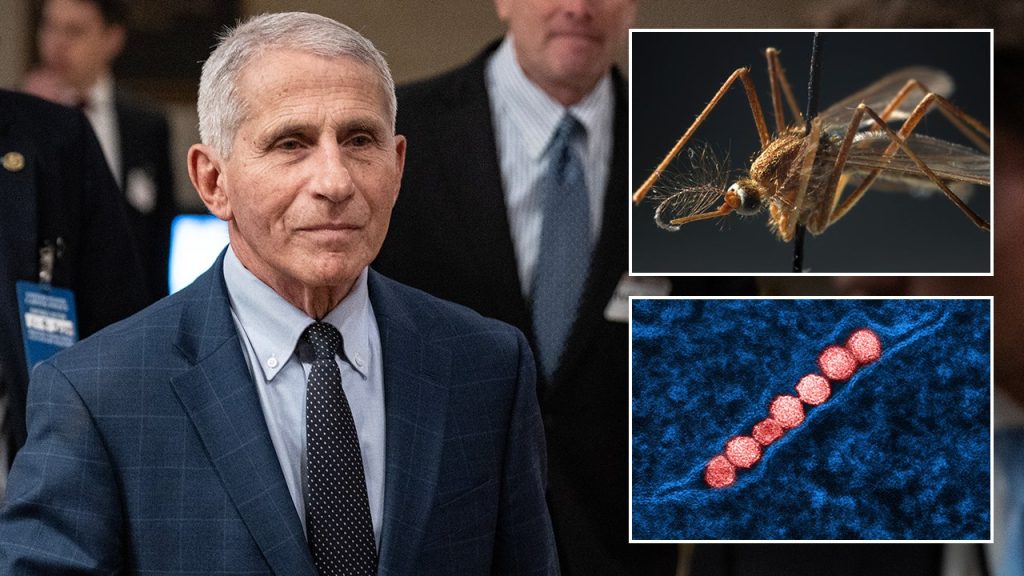Dr. Anthony Fauci, the well-known face of the U.S. coronavirus response, was hospitalized earlier this month with the West Nile virus (WNV), a spokesperson confirmed. Fauci, 83, spent six days in the hospital before returning home to recover. While the virus is commonly spread through mosquito bites, Fauci is expected to make a full recovery. The West Nile virus, which first entered the U.S. in 1999, is the leading cause of mosquito-borne disease in the country. Symptoms include fever, headache, body aches, vomiting, diarrhea, or rash, but around 80% of those infected do not experience any symptoms. There are currently no vaccines or treatments available for the virus, which led to over 1,800 hospitalizations and 182 deaths in the U.S. last year.
Fauci, a former director of the National Institution of Allergy and Infectious Disease (NIAID), has been a key figure in advising U.S. presidents on public health matters for over 50 years. He was involved in both former President Trump and President Biden’s coronavirus response teams. During the pandemic, Fauci appeared on various TV shows, podcasts, and news programs to provide medical expertise. However, his opinions on issues such as masks, lockdown policies, and the origins of COVID-19 have made him a controversial figure among both the left and right. He notably clashed with Senator Rand Paul over the origins of the COVID-19 pandemic and allegations of funding gain-of-function research at the National Institute of Health.
Senator Rand Paul has accused Fauci of knowing about the Wuhan Institute of Virology’s attempts to create a coronavirus similar to COVID-19 as early as 2018, suggesting a potential cover-up. Fauci has denied any suppression of the theory that the COVID-19 pandemic originated from a lab leak in Wuhan, China. During his testimony before the House Oversight Select Subcommittee on the Coronavirus Pandemic, Fauci also defended vaccine mandates for students, employees, and the military, highlighting the life-saving benefits of vaccines in preventing infection. He acknowledged that while vaccines may have initially prevented infection in some individuals, their long-term efficacy may be limited.
Fauci’s hospitalization with the West Nile virus comes at a time when he has faced scrutiny concerning his responses to the COVID-19 pandemic. Despite his medical expertise and long-standing career in public health, Fauci has become a polarizing figure in discussions surrounding the pandemic. His statements on mask-wearing, lockdown measures, and vaccine efficacy have generated controversy among politicians and the general public. However, he continues to emphasize the importance of vaccination in reducing the spread of COVID-19 and saving lives.
As Fauci recovers from the West Nile virus, his absence from the public eye may impact ongoing discussions surrounding the pandemic response. With Fauci being known as a prominent source of medical advice during the pandemic, his recovery will be closely monitored by those who have relied on his expertise. As the former director of the NIAID, Fauci’s contributions to public health have been significant, and his absence underscores the importance of having knowledgeable and experienced figures guiding the nation’s response to health crises. Despite the controversies surrounding him, Fauci’s dedication to public health and his efforts to combat infectious diseases remain a central part of his legacy.


